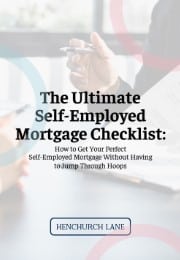Buy to Let Self-Employed Mortgage
- Friendly expert mortgage advisers
- We work with dozens of lenders
- Access to competitive rates
Home » Self Employed Mortgages » Buy to Let Self-Employed Mortgage

Buy to Let Self-Employed Mortgages
Paul Holland answers frequently Googled questions on Buy to Let mortgages for the self-employed.
What should you consider if you are self-employed and looking for a Buy to Let mortgage?
If you’re self-employed and looking at Buy to Let, there’s lots of things to consider. One of the main things we talk to self-employed people about is tax wrappers. This concerns how you buy property – personally, or through a limited company – and how it could impact you from a tax perspective.
We also discuss whether it’s worth buying property in your name or a partner’s name. How your accounts look is also a factor, plus how you might be impacted by having a property portfolio, to some degree.
Should I Buy to Let as an individual or through a limited company?
It’s going to depend on a few different factors. The outcome won’t be the same for everyone, even those in similar situations. Factors that have an impact are whether you’re already in the higher rate tax bracket, or if you already have a Buy to Let portfolio. In those situations there’s a good chance that it could benefit you to buy through a limited company.
At the same time, there might well be an argument to buy that property personally. A good broker will work with you, alongside your accountant, to make sure that they’re taking you down the right road and helping you make informed decisions.
What is a special purpose vehicle or SPV?
A lot of people that have looked into Buy to Let will have come across this on Google. A Special Purpose Vehicle is just a limited company set up for the sole purpose of buying and renting property.
It’s almost like a real estate company. It doesn’t have to have been trading already so if you were to buy a property and decide to buy it as a limited company, you would simply come up with a company name and pay HMRC £15 to set it up – then you’re good to go. You’re a property investor. That’s all it is – it’s simply a tax wrapper.
How do lenders assess income for a self-employed Buy to Let mortgage?
The maximum loan that you can borrow is based on the rental potential for the property. The higher the rental income, the more you’re likely going to be able to borrow.
Some lenders will want you also to have a personal minimum income of a certain amount before they will accept you. A common amount for this might be £20,000 or £25,000 per annum. Others don’t have any of those minimum income requirements at all.
What is top slicing and how does it work?
As we mentioned before, lenders use the rental income to calculate the loan. But if you can’t quite reach your borrowing goal based on the rental income, they might look to utilise your personal income as well.
They may factor in things like your residential mortgage and your commitments. If you’ve still got money left over, they can suggest that this disposable income could go towards Buy to Let affordability as well.
They ‘top slice’ that income and allow you to push that maximum loan a little bit further. It can be really helpful, but not all lenders will allow you to do that.
How can a mortgage broker like Henchurch Lane help with a self-employed Buy to Let mortgage?
This area is about as complex as it gets from a mainstream mortgage perspective. We’ve placed hundreds of these types of cases. We work with self-employed people with various different income streams and complex income revenues. So we know all the little tricks when it comes to Buy to Let. We can explore if it’s going to make sense for you to put a Buy to Let purchase through an SPV, with a lender who’s going to do a bit of top slicing as well.
That’s not easy to research, so this is exactly where a broker is going to come in and prove their worth. There are seasoned landlords out there that have been through this time and again – but the goalposts for these mortgage products move on a daily basis. So if you can, set aside the time to speak to a broker – it is definitely going to pay you dividends in the long run.
Your property may be repossessed if you do not keep up with your mortgage repayments. The Financial Conduct Authority does not regulate some Buy to Let Mortgages.
Why Us?
- Friendly, expert mortgage advisers
- We work with dozens of lenders
- Access to competitive rates

